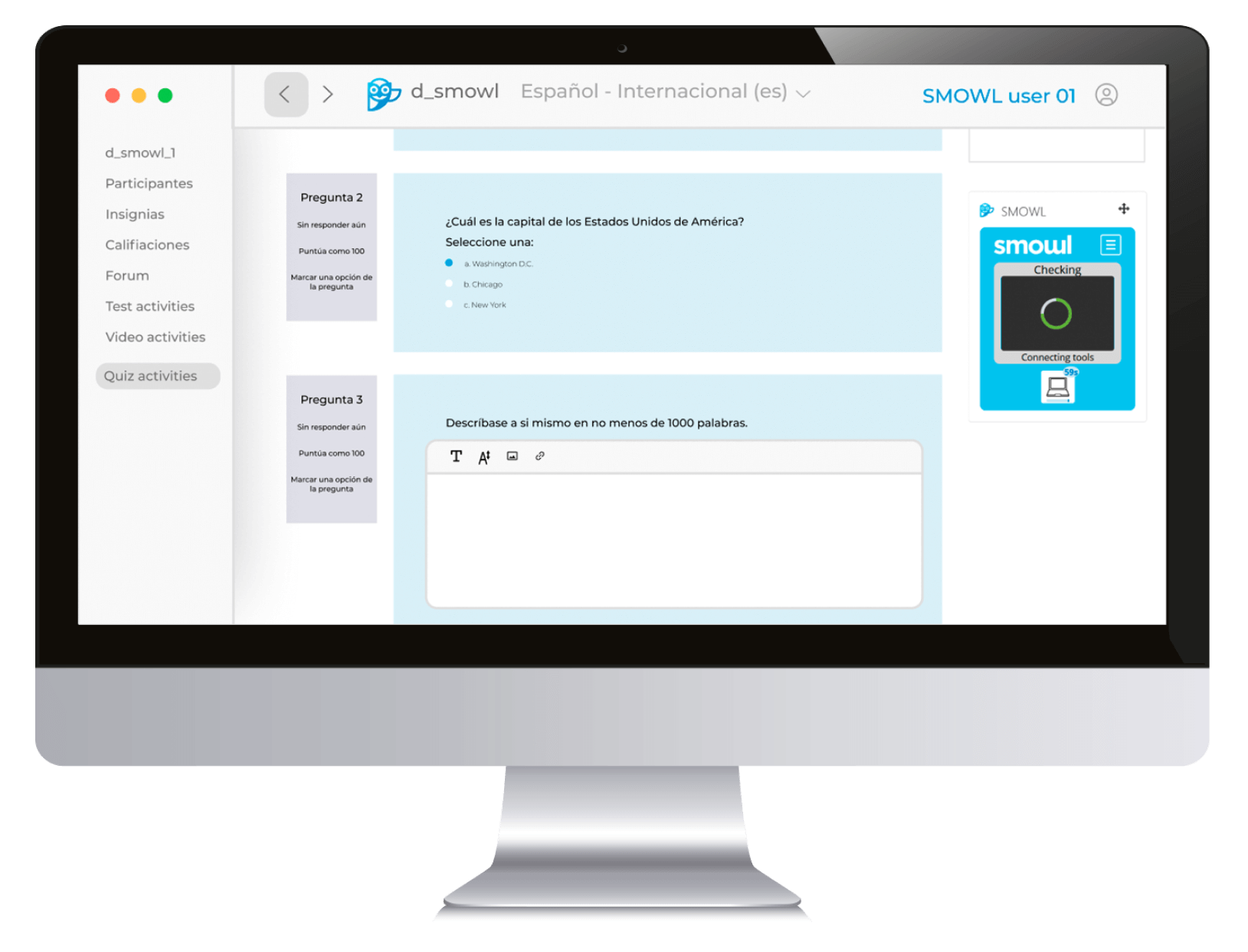The benefits of teamwork have a direct impact on the motivation of the employees and on their productivity and value.
According to Human Resources experts, fostering teamwork is a determining factor since the work environment is one of the causes that most affects people and this can be conditioned by the existence or lack of team spirit.
Once the importance of teamwork has been discussed, we are going to talk about the benefits of it and some dynamics to develop it that will help your employees to progress in their respective professional careers.
What is teamwork?
Teamwork is the development of tasks to achieve a common goal set by a coordinator who combines in a balanced way the skills and competencies of the members of a group to implement strategies, procedures and methodologies.
In this way, a series of behavioral rules are established to help members interact with each other. This allows the team to function as a perfectly organized unit where each member has a defined role and helps the others to reach the common goal.
Since responsibility and successes are shared, alliances are strengthened and communication is improved, creating cohesion through camaraderie.

13 benefits of teamwork
The benefits of teamwork are numerous, both for your employees and for your company’s strategy.
Below we list and develop the most important ones.
Creativity and idea generation
Creativity is synonymous with new ideas and when it comes together from several people, it translates into greater options to learn from each other and to perfect the individual to achieve more effective results.
Productivity
Greater productivity is a benefit of teamwork that is achieved thanks to the shared workload, larger creativity and the generation of joint ideas, among others.
Workload sharing
In projects where the amount of work is large, teamwork facilitates its distribution taking into account the strengths of each team member and delegating intelligently to ensure maximum efficiency at all times.
Problem solving
Working together with others enhances problem-solving skills by leveraging the combined knowledge of everyone involved with their points of view and their contribution to solutions for even the most complex issues and larger challenges.
Conflict resolution
Conflicts arise when several people have to work together on the basis of different work styles and habits.
However, a good management of these differences means that employees who share a common project or work are forced to find solutions to them in order to move the project forward without having to go to management.
Decision-making
Teamwork encourages each member to be involved and motivated to contribute their own solutions, as well as to participate in individual or collective decision-making to achieve the overall objective.
Development of synergies
The development of synergies is common in team projects where critical thinking, the interaction of the members and their joint collaboration have the effect of increasing productivity.
This is also helped by the fact that employee involvement is higher and the objectives to be achieved are clearer to the participants.
Subscribe today to SMOWL’s weekly newsletter!
Discover the latest trends in eLearning, technology, and innovation, alongside experts in assessment and talent management. Stay informed about industry updates and get the information you need.
Simply fill out the form and stay up-to-date with everything relevant in our field.
Achievement and alignment of objectives
Combining individual efforts and putting them at the service of a common goal forms a single front focused on achieving shared objectives for which employees are perfectly aligned.
Flexibility
As a result of moving projects forward based on consensus and implementation of actions, employees learn to be more flexible and to assume that they are an important part of a much more complex and global gear.
Stress management
Teamwork allows us to identify those professionals who are able to better manage stressful situations.
By sharing responsibilities and broadening the perspectives of analysis, the profiles that can withstand extreme situations naturally become more visible.
This reveals the professionals who are most capable of finding the most efficient solutions in difficult situations.
Improvement of communication skills
Working in a team helps to learn to communicate effectively by improving skills such as decision-making and empathy.
Both skills are key when assessing talent in a company.
Commitment and work motivation
By sharing projects and clear objectives, employees learn to trust each other and develop strategies and synergies that benefit the group.
Thus, individuals are strengthened because they gain personal confidence and expand their own professional skills and abilities, while this positive climate reinforces their commitment to the corporate culture and their motivation.
Unblocking fears and insecurities
Fears and insecurities are factors that can hold your teams back. Group work offers the necessary tools to each member to overcome them by developing resilience and adaptability.
In the face of all these benefits, there is a possible disadvantage: the emergence of a leader who overshadows the others or a small group of people making decisions without the support of the rest.
To avoid this, you can integrate dynamics that help to understand how to work as a team.

Teamwork dynamics
The following techniques participate in the development of team spirit, in addition to helping you detect and enhance strategic skills to develop talent in your organization.
Brainstorming
This is one of the most commonly used techniques for generating new ideas that provide a solution to a problem or a methodological deficiency.
If you find that certain profiles are reluctant to participate openly, you can propose technique 6.3.5, which consists of generating ideas in writing or opt for icebreaker dynamics in a first approach.
Through brainstorming, you enhance the creativity and innovation of your employees.
Nominal group technique by Delbecq and Van de Ven
It focuses on a highly structured study in which the team must reach a quick consensus avoiding the classification between losers and winners.
People improve skills such as negotiation and active listening.
Delphi method
It is based on consulting experts and specialists with different backgrounds and/or hierarchy throughout several structured stages to reach a consensus.
It is a good way to observe skills such as proactivity and analytical spirit.
Role-playing games
They pose a conflictive or complicated situation to team members who are assigned a specific role.
For example, in the hot air balloon game, the passengers in a balloon must unanimously agree on who should be ejected from the balloon in the face of an imminent loss of altitude.
As you can see, these techniques are a good way to develop interpersonal skills such as reasoning, empathy and leadership.
The desert island
Allows you to work on decision making and positioning in a negotiation while fostering group cohesion.
Each participant individually chooses 2 objects to take to a desert island. Subsequently, they organize themselves into pairs and have to negotiate to keep only 2 of the 4 they have chosen.
Then they get together in small groups and negotiate so that there are always 2 objects left.

3 teamwork and talent development factors
To further explore why teamwork is so important and how it influences the evaluation of talent by the company, we will address 3 aspects necessary for its development.
Leadership
Without effective leadership that brings unity to the group and clear directives, teamwork can be frustrating or even detrimental.
Therefore, it is crucial to recognize among your employees those with leadership skills and talent assessment is a great ally to achieve this.
Elimination of communication barriers
Working in a team promotes different channels of exchange that create communicating vessels among employees.
Constructively integrating the analysis of disagreements into your strategy can help to improve employee performance evaluation.
Investment in human capital
Having teams that are motivated and committed to the corporate culture encourages employees to give their best on projects.
That is why integrating career plans into your company is a great way to strengthen commitment and retain talent.
Aware of the importance of teamwork, at Smowltech we develop proctoring plans that help you manage teamwork dynamics remotely, as well as training and evaluations in safe environments.
Ask for your free demo and we will explain in detail what we can offer you.
Updated on
Download now!
8 interesting
facts
about proctoring
Discover everything you need about online proctoring in this book to know how to choose the best software.
Fill out the form and download the guide now.
And subscribe to the weekly SMOWL newsletter to get exclusive offers and promotions.
You will discover all the trends in eLearning, technology, innovation, and proctoring at the hands of evaluation and talent management experts.






